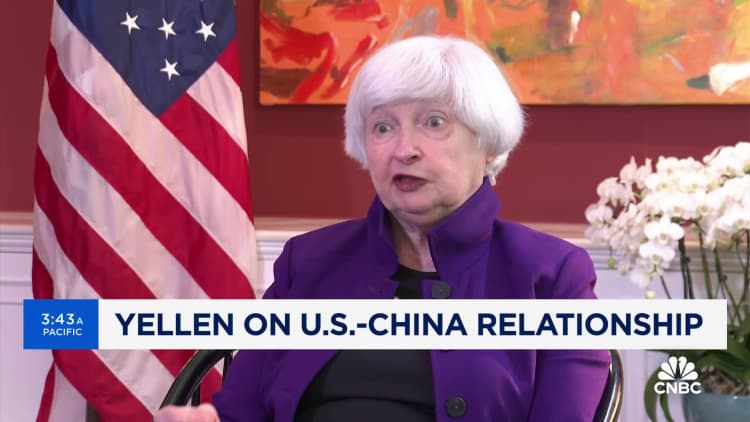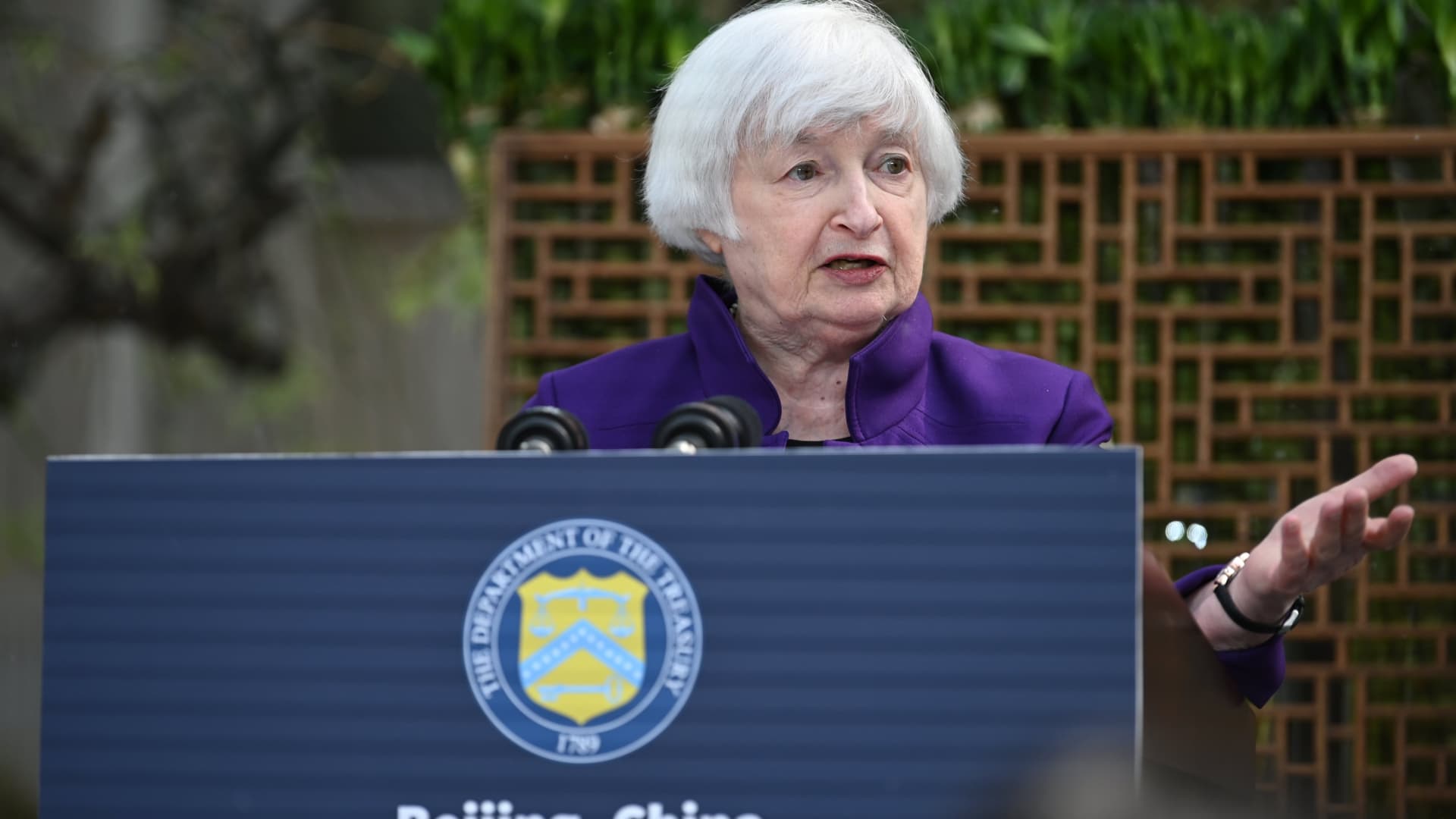US Treasury Secretary Janet Yellen speaks to journalists.Â
Picture Alliance | Picture Alliance | Getty Images
The United States is prepared to sanction Chinese banks and companies, as well as Beijing’s leadership, if they assist Russia’s armed forces with the invasion of Ukraine, U.S. Treasury Secretary Janet Yellen said Monday.
“We stand ready to act if we see significant violations, especially by financial institutions,” Yellen said in an interview with CNBC’s Sara Eisen in Beijing. “Anything that involves aiding Russia’s military in their brutal war against Ukraine is unacceptable to us and we have the ability to sanction it.”
President Joe Biden issued a new executive order in December that vested the Treasury secretary with the authority to sanction financial institutions that aided Russia’s military-industrial complex.
Yellen said the Treasury Department has “not used this tool yet.”
China is “entitled” to have a relationship with Russia, she said, noting that much of the trade between the two countries is seen by the U.S. as nonproblematic. But the provision of military aid from Beijing to Moscow could trigger sanctions.
Yellen has been in China for several days already, meeting with officials including her counterpart, Vice Premier He Lifeng. The Treasury secretary arrived in the city of Guangzhou on Thursday and traveled to Beijing over the weekend. She is scheduled to depart for Washington on Tuesday.
Yellen was tasked with delivering a tough economic message on the visit, one that placed U.S. interests first while also seeking to stabilize the fraught diplomatic relationship between the world’s two remaining superpowers.
Yellen raised U.S. concerns about Chinese overcapacity in the green energy industry like solar panels, electric vehicles and lithium-ion batteries.
Washington alleges that Chinese government subsidies for these products have vastly outpaced its domestic demand for them. If Chinese manufacturers can’t find buyers for their green energy infrastructure at home, they might choose to dump their cheaper surplus products onto global markets, and price out other companies.
Chinese state media has publicly denied this, though Yellen said that in her meetings, officials “understood that this is something that’s very important to the U.S.”

Yellen did not rule out the possibility of higher U.S. tariffs on Chinese imports, if China failed to address these concerns.
The overcapacity issue is among the many trade tensions that have characterized the U.S.-China relationship in recent years.
Former President Donald Trump‘s initial round of tariffs in 2017 effectively put economic and trade cooperation on ice for several years. Biden has maintained many of those tariffs throughout his first term and has threatened to raise some.
Biden met with Chinese President Xi Jinping in California last November in an effort to thaw relations and reestablish high-level communications between the two governments.
“That’s what we’re trying to do,” said Yellen. “I feel our relationship in this economic sphere is in a much better place” than it was a year ago, she said.
Read the original article here



